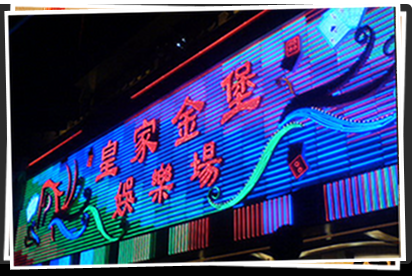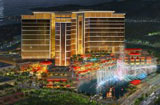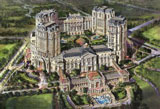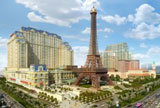Barron’s produced a report recently that used the results of Wynn as the focus for a gush piece about Macau. We wouldn’t normally tear apart anyone else’s analysis, as it’s a bit ungentlemanly, but our CEO is currently visiting the Big Apple and seems to have gotten into a New York state of mind, so here goes.
Steven Sears, the report’s author, makes a common mistake that many people writing about Macau from the comfort of New York make. He talks to bankers and others who have just come back from trips to China. And so when these people, who spent their entire trip in five-star comfort, usually in Beijing, Shanghai and Hong Kong, tell him they are blown away by how much wealth they have seen, without stopping to quantify it, they get everyone’s pulses racing. This has been happening on and off in China pretty much since Marco Polo came back to Venice and allegedly shook jewels out of his robes – with a few interruptions over the eight centuries since then, of course, such as the war with Japan and the first 30 years of communist rule.
The next mistake he makes is a bit harder to avoid for novice analysts of Macau. He assumes that it is the rise of China’s middle class that is driving Macau’s growth in gaming revenues. In fact, it is the rise of China’s newly rich elite and the spread of wealth at the bottom of the pyramid among the underclass, not the middle class, that is driving Macau’s growth. China’s middle class is more sensible, like their Hong Kong cousins who come to Macau quite frequently, but prefer to visit the A-Ma temple and buy snacks in old Taipa village before throwing down a few hundred just for fun on the tables. In contrast to the new elite, these people work hard for their money and are not about to squander it on a fool’s errand. And as China’s economy develops further, they will become more and more like the Hong Kong model, and the US model before that, of sophisticated spenders on a wide range of entertainment options. (And Macau will start to realise that Lawrence Ho’s decision to stick with the House of Dancing Water was the correct one, and Steve Wynn’s decision to build a Golden Tree instead was the wrong one.)
The new elite, by contrast, are mostly people who have made their money in fabulously short time, and often by means that would not hold up well to scrutiny by tax collectors. So it’s fair to say that their motivation to get money out through the junkets in Macau is not always as fun-seeking as it is portrayed. We’re not saying they don’t have fun while they are in Macau, but that their reasons for being here are a bit more complicated than simply wanting to joust with the gods.
It is the people at the bottom of the ladder who have been the main drivers of the mass market – the real mass market – to date. These are people who really shouldn’t be gambling in Macau. But economic reforms of the past 30 years have put a bit more disposable income in their pockets and so they can’t resist the lure of a jackpot, placing one more bet that might take them away from the daily grind forever. They comprise more than two-thirds of the visitor market to Macau – people who don’t stay in a hotel room. If ever the Macau government were to implement a serious policy forcing the casinos to introduce strict guidelines on responsible gaming, this market might – just might – be affected. (And yes, if all you clever dicks in the casino marketing teams are about to sneer that we don’t understand premium mass, we will add that we understand it plenty well, which is why we are talking about the “real” mass market here.)
The third and final mistake the report’s author makes is to pick an American stock on which to focus, simply because it is a name that American investors can pronounce and identify with. In choosing Wynn, Sears seems to have swallowed the hook put out by the company that, yes, its stock might be carrying a big premium over the competition right now, but its Cotai resort hasn’t been factored into the equation yet. This is simply lazy. More in-depth research would produce a far more intelligible argument in favour of Melco-Crown (MPEL) at the moment, if the investor wants a US-listed stock, or SJM, if they are able to venture beyond the limits of Mike Bloomberg’s city.
No offense, Stephen. We’re just trying to give our subscribers their money’s worth. Please stay tuned. Copyright & use with permission IntelMacau.com





















